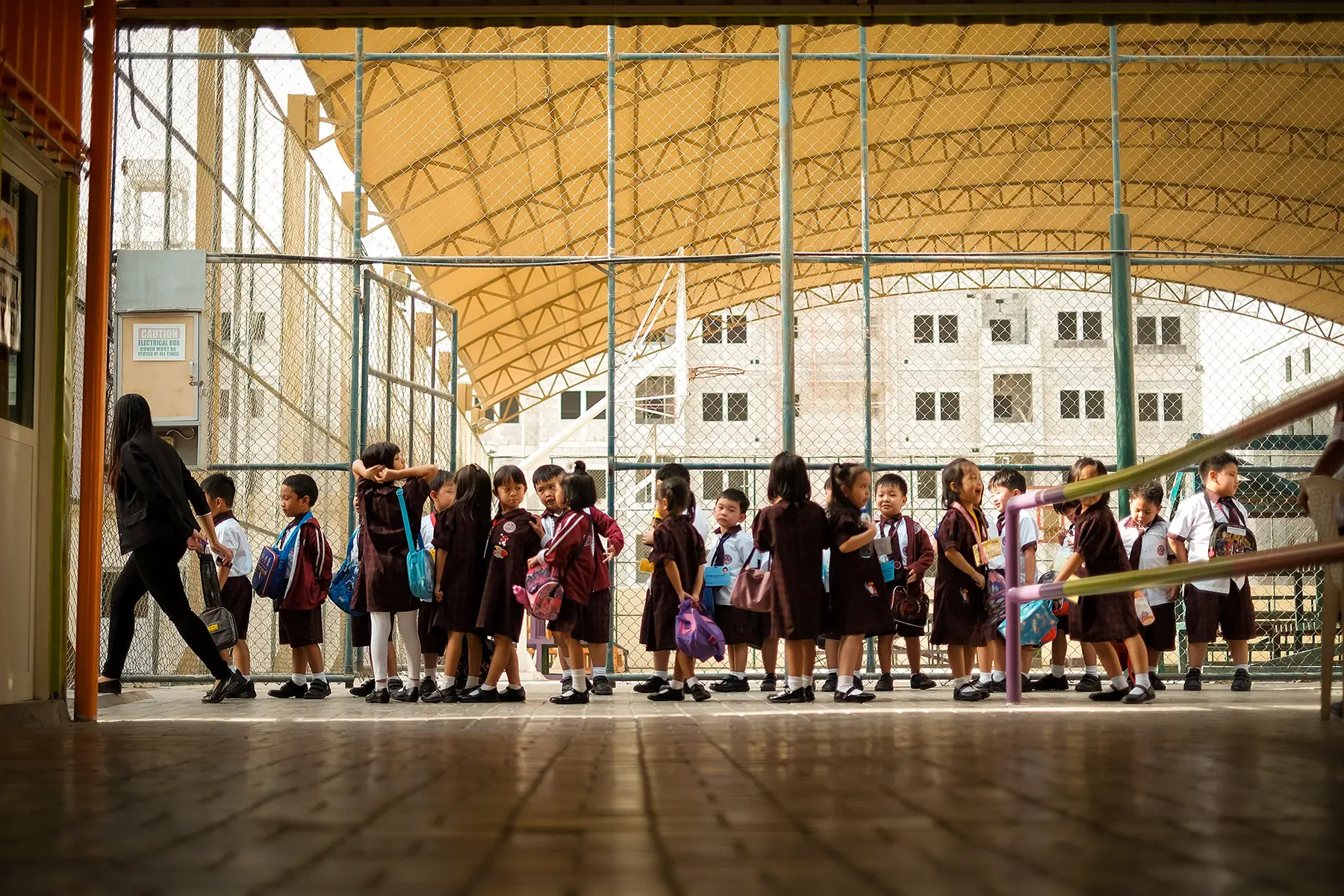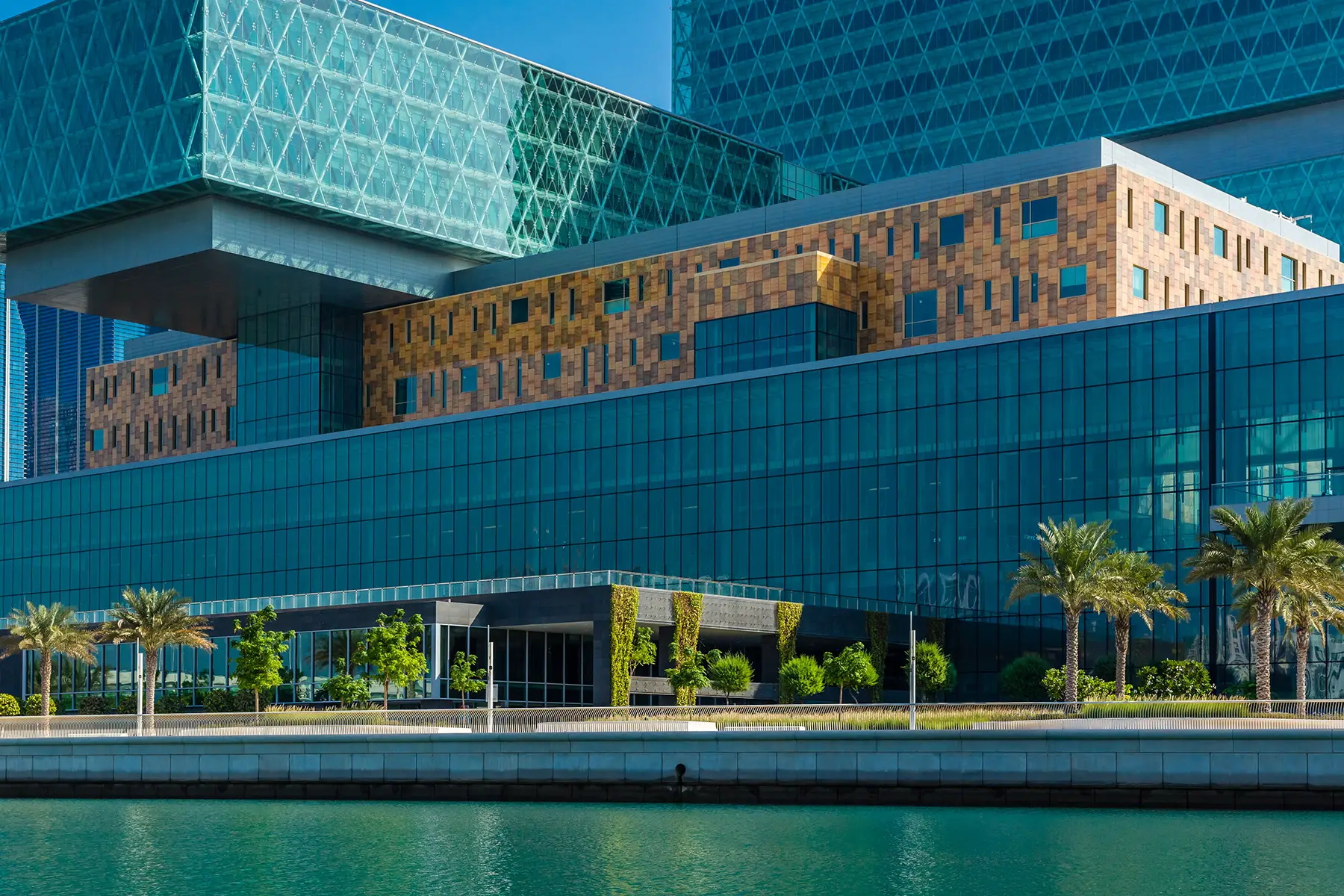A move to the United Arab Emirates (UAE) encompasses many details. There’s figuring out the relocation and visas, getting an Emirati ID, finding a new home, setting up the utilities and communications, and opening a bank account. Of course, for parents, navigating the school system and figuring out how to access childcare are equally important considerations.
To help you understand how to find reliable childcare in the UAE, you can explore the following topics:
- Childcare in the UAE
- Who can access childcare?
- Preschool and daycare in the UAE
- Nannies or au pairs in the UAE
- Babysitters in the UAE
- Employer childcare in the UAE
- Childcare for school-age children
- Childcare for children with special needs and disabilities
- Childcare in the UAE during school holidays
- How to find childcare in the UAE
- Child benefits and childcare allowance in the UAE
- Children’s healthcare
- Becoming a child carer in the UAE
- Useful resources
APRIL International
Looking for expat-friendly health insurance in the UAE? APRIL International has a long history of providing health coverage tailored to the unique needs of the expat lifestyle, ensuring peace of mind for you and your family. Whether you’re relocating to the UAE or simply staying short-term, APRIL International has the right policy for you.
Childcare in the UAE
When it comes to childcare in the UAE, parents have the option to go public or private. However, expat parents should know that public childcare is available only to Emirati citizens. As such, non-Emirati residents of the UAE will need to look for private childcare. These can include out-of-home care, such as preschools, nurseries, and daycare centers, as well as in-home childcare with nannies and babysitters. According to the latest official statistics (2014), 497 nurseries in the UAE were catering to 35,552 children.
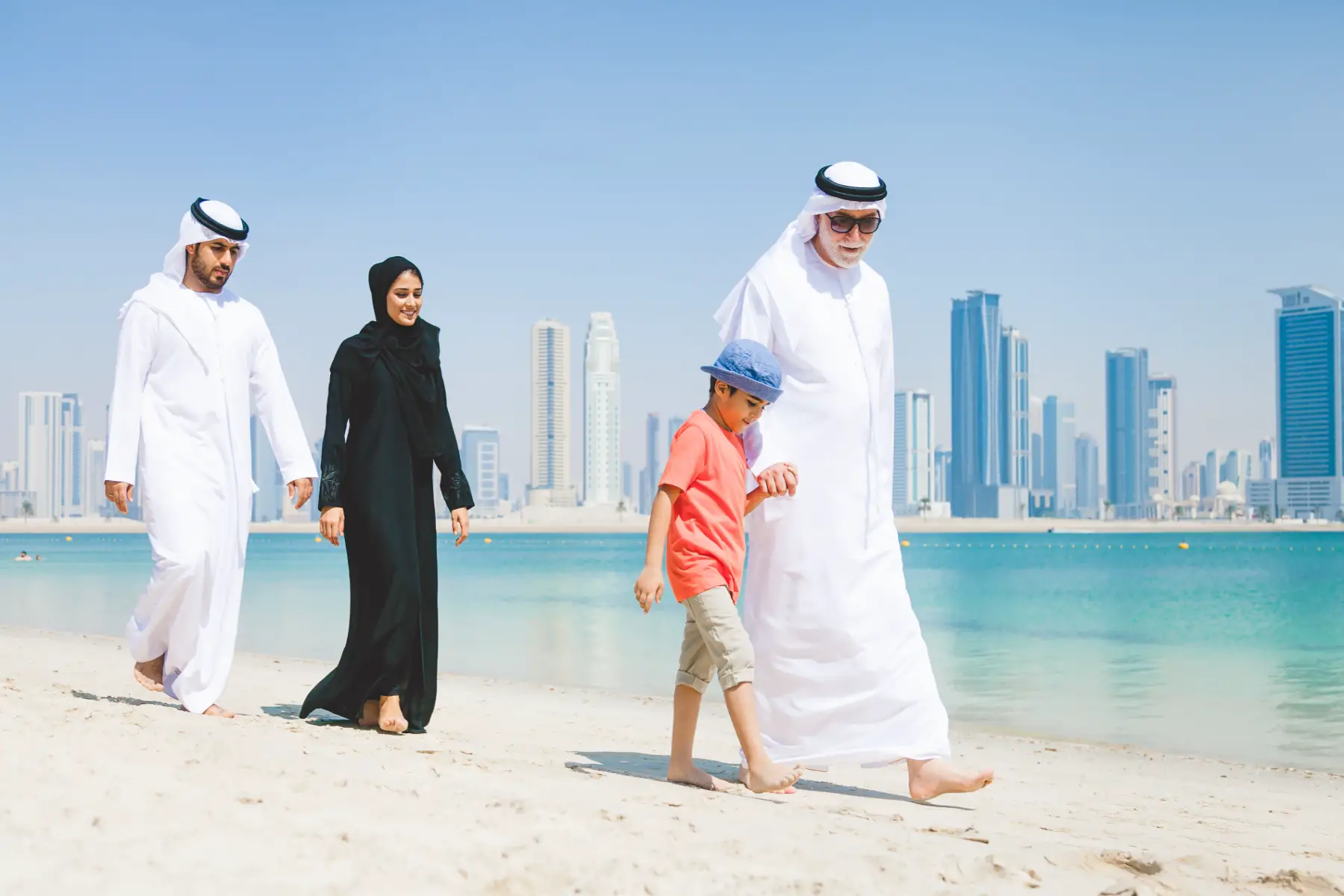
The Ministry of Education (MOE) oversees all childcare facilities. This department works closely with the Ministry of Interior (MOI), Ministry of Community Development (MOCD), and Ministry of Health and Protection (MOHAP) to safeguard the overall well-being of children. In 2022, the MOE also established the Federal Authority for Early Childhood Education to design, implement, and oversee policies and programs for the early childhood development sector within the education system.
New mothers in the UAE receive 60 days of maternity leave in the private sector. Of this, 45 days are fully paid, while the remaining 15 days are at half-pay. In addition, fathers get five days of parental leave that they can use at any time before the baby is six months old. After this, there is little official flexibility for parents to take time off for childcare in the UAE.
However, federal government employees have some flexible working arrangements to see their children off on the first day of school.
Who can access childcare?
Public childcare facilities in the UAE are only available to Emirati citizens. However, expat parents can access childcare options through the private sector. The specific requirements for these will differ by the individual facility.
Generally, you would also need to provide the following documents:
- Child’s birth certificate
- Child and parents’ UAE visa
- Proof of vaccinations
Parents will have to pay out of pocket for private childcare. The costs can vary greatly depending on the facility.
Preschool and daycare in the UAE
In the UAE, children must start compulsory education at six. However, many parents begin looking at preschools, nurseries, and daycare centers long before this. Again, if international parents choose this option for childcare in the UAE, they will need to look at private preschools and daycares. Most centers accept children from 12 months, though some will enroll babies as young as three months old.
The fees and schedules can differ significantly depending on which facility you choose. Some, for example, might only offer a few hours or half-day care, while others might have options for full-day care. Costs can range from AED 1,050 to 27,000. Remember that many private preschools and daycares – especially those popular with foreign nationals – will have long waiting lists, so apply early.
International childcare
There are 9.3 million internationals living in the UAE, making up more than 89% of the population. For this reason, there are many international childcare options available. The advantage of this is that children are immersed in a multicultural environment and exposed to various languages. Some of these international childcare facilities in the UAE also feed into international grade schools, which can offer a seamless transition into formal education.
Nannies or au pairs in the UAE
Many international parents in the UAE choose to hire nannies or au pairs for their young children. There are currently about 750,000 nannies working in the UAE. But many of them do not have official childcare training or qualifications. Several options are available, from live-in and live-out nannies to day or night au pairs. The advantage of hiring a nanny in the UAE is that they can focus exclusively on caring for your child and sometimes help with household duties.
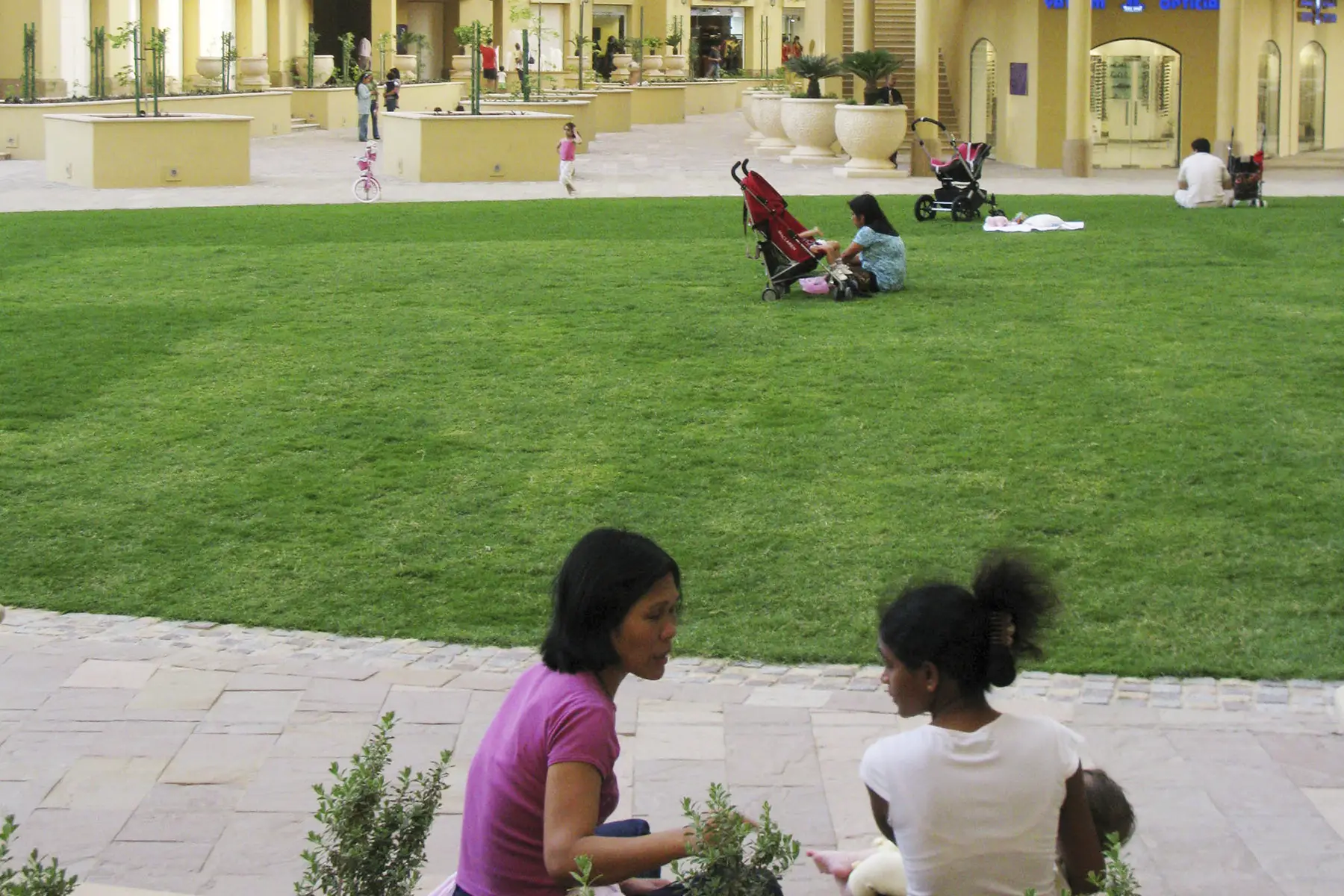
Importantly, as they would likely be foreign nationals, you would be responsible for sponsoring their visa. Depending on the exact terms of employment, you may also need to provide accommodation and cover transport costs and flight tickets.
The cost of hiring a nanny for childcare in the UAE can vary greatly depending on the agency, their specific duties, and experience. In general, though, the average salary ranges from AED 1,800 to 3,000 per month. Usually, you will need to sign a two-year contract and pay for registration fees, medical checks, and an Emirati ID.
There are numerous ways to find a nanny in the UAE. You could ask friends and colleagues or search Facebook groups. Below are some of the popular local sites parents use to look for nannies:
Babysitters in the UAE
Some parents prefer more informal options for childcare in the UAE, such as babysitters. Usually, you can find a regular or ad-hoc babysitter for a specific timeframe, which can be helpful if you plan an evening out or need regular care for a few hours a week. As with other childcare options, rates for a babysitter can vary. But, you can expect to pay between AED 55 and AED 70 per hour.
Although you should always ask around for trusted recommendations, you can also look for babysitters on the following sites:
Employer childcare in the UAE
Although new mothers in the UAE legally receive up to 60 days of maternity leave, many employers do not provide childcare options once they return to work. There are some exceptions, especially among larger companies that might offer work-hour flexibility or childcare allowances. But, this is rare.
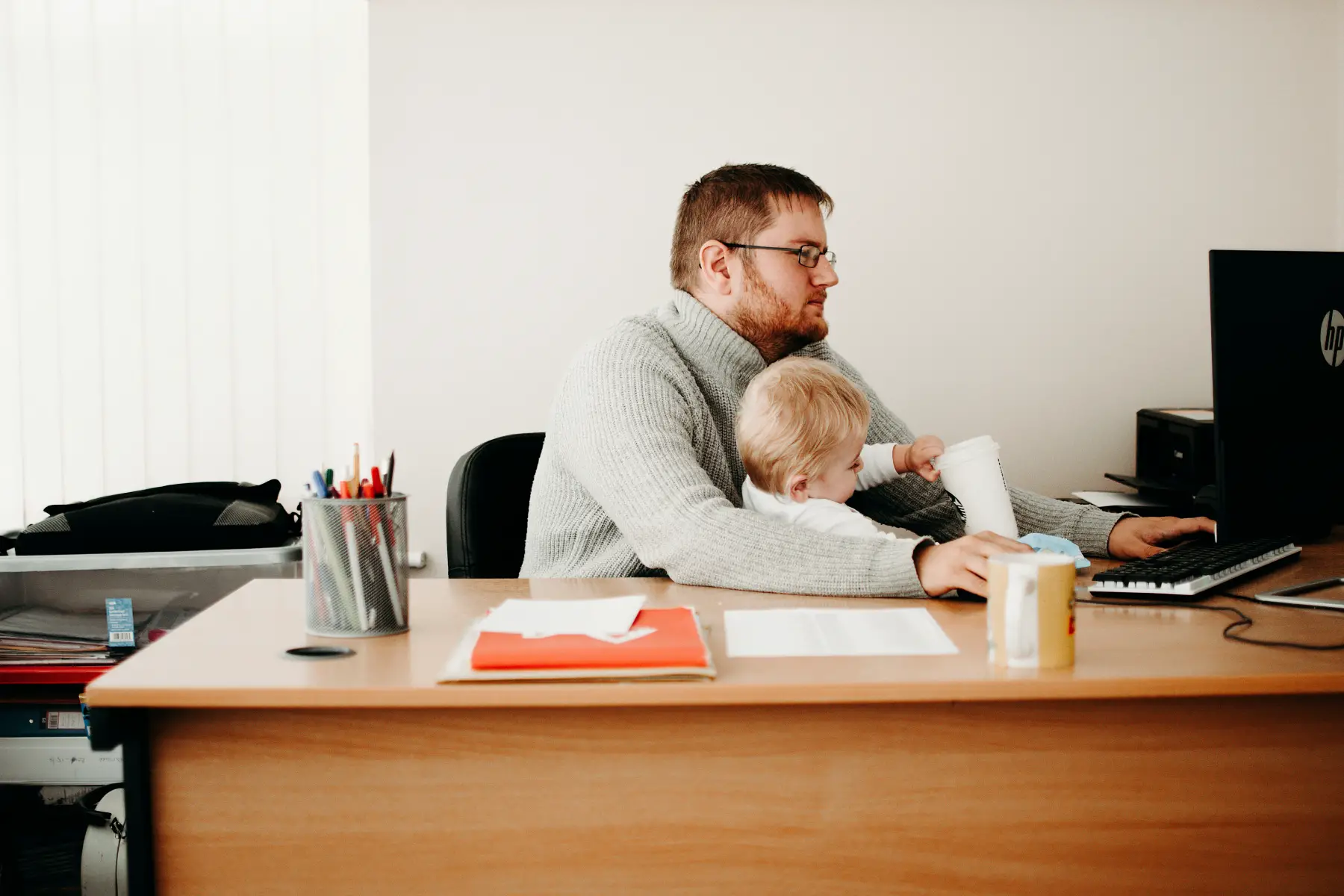
Typically, only federal employees get childcare provisions while on the job. As of 2006, the UAE requires all government departments with more than 50 female Emirati staff – or where the female Emirati employees have more than 20 children collectively – to create onsite nurseries.
Childcare for school-age children
Expat parents often look to their children’s private or international schools to provide after-school childcare in the UAE, especially at the secondary school level. For example, the Capital School offers a Breakfast Club from 06:30 and an After-School Club until 18:00. Qualified teaching assistants provide light meals and supervise activities, such as yoga and messy play.
Similarly, Kids First Group nurseries offer After-School Clubs with activities, enrichment programs, and camps. Most schools will offer a wide range of after-school activities and clubs for older children, from sports and music to volunteering and creative pursuits.
In general, parents will have to pay for after-school care, though the costs will differ depending on the facility. However, many after-school clubs and activities are free, except when you need to pay for specific equipment and materials.
Childcare for children with special needs and disabilities
There does not seem to be a national childcare program supporting families with children with special educational needs (SEN) or disabilities. However, SEN is part of the education system in the country, and families can find various resources and support groups to discuss the most appropriate childcare. In the UAE, someone living with a disability is often referred to as a person of determination to acknowledge their achievements in different sectors.
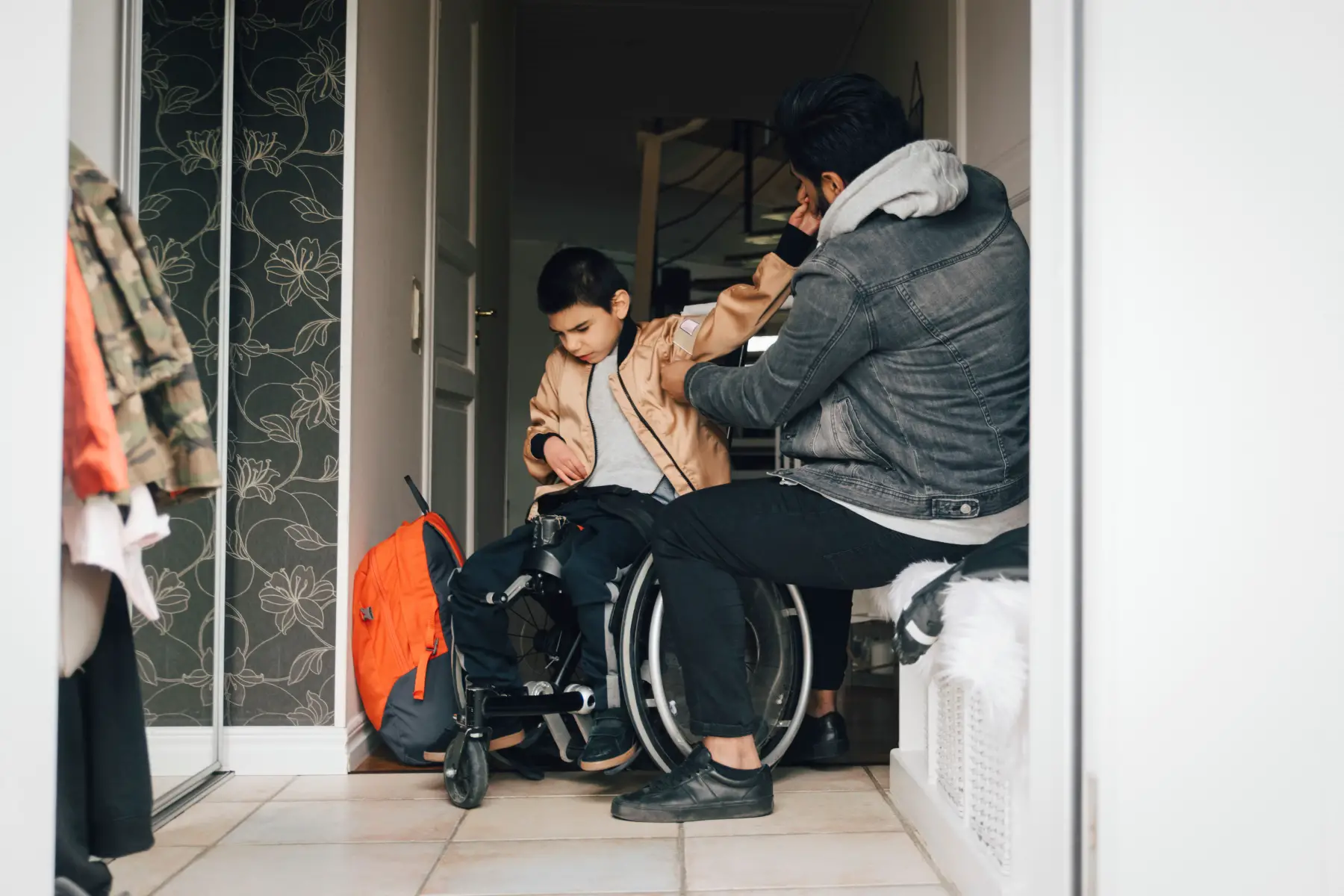
Resources and facilities include:
- The Al Noor Training Center for Children with Special Needs
- The Dubai Center for Special Needs
- The Rashid Paediatric Therapy Centre
- Dubai Autism Center
- Child Learning and Enrichment Medical Centre (Maharat)
- The Future Centre for Special Needs
- Stars for Special Abilities and Early Intervention Center
- Wilson Centre for Children
- Manzil
The Almana Healthcare Hospital in Al Ain offers an in-hospital education program for children who require ongoing medical care.
Many nurseries, such as the Developing Child Centre, also offer inclusive programs or focus on children with higher developmental needs. Moreover, you can find nannies trained in caring for children with disabilities through groups like Alamaani Nanny Agency.
Childcare in the UAE during school holidays
The school holidays can be challenging for parents as they try to balance work commitments with looking after their children at home. Luckily, there are numerous holiday childcare options in the UAE. Many private daycare centers remain open during the holidays, but some may have different operating times. In addition, families who have nannies and babysitters may be able to extend the hours of childcare provided (at extra compensation, of course).
The UAE also has many types of holiday camps during the summer and winter holidays. Children and teenagers can spend the holidays exploring their interests in music, sports, adventure, theater, and STEM. Below are some popular holiday camps in Dubai and Abu Dhabi.
- Aventura – Daily and weekly camps at a ziplining park (AED 100 – 1,345)
- Ballers – Sports-focused camps specializing in football (AED 1,800)
- Courtyard Playhouse – Theater camps including screenings, performances, and workshops (AED 1,215/week)
- Empire Sports Academy – Football summer camps (AED 131/day or AED 600/week)
- STEM – Camps focusing on science, technology, engineering, and maths (AED 225/day or AED 1,075/week)
How to find childcare in the UAE
First, be clear about your childcare needs and budget
For example, do you need care full-time or just a few hours weekly? Do you want to take your child to a facility or have someone care for them at home? How much can you afford to spend? These types of questions will help you narrow down your options.

Next, to find reliable childcare in the UAE, ask friends, colleagues, and your network for trusted recommendations. You can also search online for agencies, facilities, nannies, and babysitters. There is a wide range of Facebook groups and websites where you can explore childcare options. To start your search, have a look at some of the ones listed below:
Child benefits and childcare allowance in the UAE
Unlike many other countries, the UAE offers few childcare allowances or benefits, except for the local social welfare program offering support to low-income families. However, these are only available for Emirati citizens until the child turns 21. This begins at AED 2,400/month for the first child, with an additional AED 1,600 for a second and third child, and AED 800 for the fourth or subsequent children.
Children’s healthcare
The UAE has a high-quality healthcare system that includes public and private facilities. Children can access these, along with specialist children’s hospitals and clinics. However, you will need a national public health card from the Ministry of Health and Prevention.
The UAE requires children to have certain vaccinations up to Grade 11. These include HPV, MMR, Polio, and Hepatitis B.
Most internationals purchase health insurance to access private facilities. Usually, this is a benefit added to work contracts and would cover employees’ children.
Becoming a child carer in the UAE
While setting up a childcare facility in the UAE is easy, there is a fair amount of research and paperwork involved. Typically, you will need to follow these steps:
- Create a business plan – Include an overview of your business, its activities, and projected financial information
- Find a location – You will need to find somewhere accessible to your target market
- Get a license – You must apply for a trade license and approval from your local Emirate. You will also need approval from the Directorate of Civil Defence (DCD) and the Department of Health (DOH). Documents include a police clearance certificate (PCC), ID, background information, and proof of your qualifications.
- Hire staff – Ensure that they are qualified and do official background and police checks
- Get the necessary equipment – Outfit your center with suitable equipment and resources like educational materials, toys, books, toilet facilities, and somewhere to prepare food
The starting and running costs of your daycare center will depend on aspects such as licensing, equipment costs, and salaries. For example, the price for a daycare business license in Dubai can range between AED 12,000 and AED 20,000.
Fostering or adopting a child
While you might want to foster a child, foreign nationals in the UAE are usually not allowed. This is because government regulations mandate that foster parents must be practicing Muslims and Emirati citizens.

However, it might be possible to adopt a child. The process can be long and complicated because the prospective parents must complete the adoption in their home country. Still, these are the steps you’ll need to take:
- Apply for a home assessment program with the Human Relations Institute and Clinics (HRIC)
- Complete and submit the requisite paperwork
- Begin the adoption process with an agency in your home country (or another country outside the UAE)
- Meet the adoptive child
- Finish the adoption process and paperwork
- Apply for a family visa to bring the child to the UAE
Useful resources
- Ministry of Education (MOE) – government department overseeing all education, including early childhood and childcare, in the UAE
- MOE – online application form for licensing a new childcare facility
- EHS – the online portal to apply for a national public health card
- Human Relations Institute and Clinics (HRIC) – agency dealing with home assessments if you want to adopt a child


